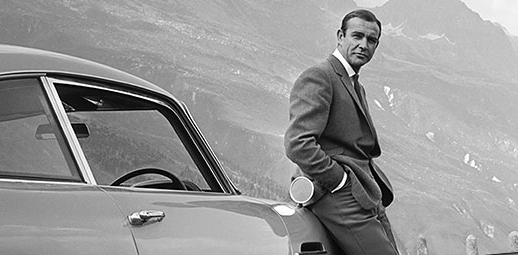
What constitutes a truly great film score? Is it the presence of a strong theme? Is an orchestral approach always the right way to go, or maybe an electronic tangent can bring out added textures?
We can't answer these questions for you definitively. However, what we can do is present you with 11 classic movie themes to celebrate National Film Score Day. Each of the following soundtracks encapsulate the majesty and thrill of the cinematic experience and, in fact, have served to make our favourite films even more memorable.
1. Gone with the Wind (1939)
Composer Max Steiner is credited as one of the godfathers of the film score. He defined a sweeping, sumptuous and romantic sound, and few of his works embody this better than Gone with the Wind. The film itself needs little introduction: a Civil War-set tale of the fiery Scarlett O'Hara's romantic travails, adapted from Margaret Mitchell's novel, and featuring memorable performances from Vivien Leigh and Clark Gable. The movie's sense of scale is well reflected in the surging strings of Steiner's 'Tara's Theme', named after Scarlett's beloved plantation. It captures a sense of optimism, heartache and human spirit amidst a dark period in American history.
2. The Magnificent Seven (1960)
If a film theme can be whistled or hummed by non-soundtrack aficionados, you know it's something special. Elmer Bernstein's work on the Western movie The Magnificent Seven is that rarest of beasts: a score that ably supports its movie, yet also transcends the screen to work as a standalone listening experience. So boisterous and exuberant is the brassy nature of the main theme, evoking horses galloping across the landscape, it's become a musical touchstone for adventure-seeking and excitement the world over. One simply cannot separate the imagery of Ul Brynner, Steve McQueen and the rest of the cast from Bernstein's music – it's that effective.
3. James Bond (1962-present)
British secret agent 007 is a character of many facets: charismatic, deadly, darkly humorous and loaded with sexual magnetism. It took a very special theme to embody all of these contradictory elements, and Monty Norman delivered with the very first James Bond movie, Dr. No. The film marked the cinematic debut of Ian Fleming's suave secret agent, propelling Sean Connery to stardom. And the brassy punch of the main theme, alternating with ice-cool electric guitar, speaks of swagger and sudden violence. The piece was arranged by John Barry who scored 11 Bond movies, on and off, up until 1987's The Living Daylights. Although each score had its own identity, Barry stayed true to that unmistakeable title theme throughout.
4. The Pink Panther (1963)
Comedy can be a hard thing to score. Push the tone too hard, and it comes off as annoying. Underplay it, and the music will feel like a missed opportunity. However, jazz veteran Henry Mancini got the balance just right with his first score in The Pink Panther comedy series. The classic alto-sax solo in the main theme has a deviously funny touch about it, perfectly capturing the essence of Peter Seller's bumbling Clouseau. That said, Clouseau was something of a secondary character in the original movie, and the piece was originally written in line with David Niven's jewel thief Charles Lytton. Only as the series went on did Mancini's finger-snapping theme become associated with Sellers' brilliant comic timing.
5. The Good, the Bad and the Ugly (1966)
If Elmer Bernstein defined the tone of the sweeping Americana Western, then Ennio Morricone completely reworked it with his landmark 'Dollars trilogy'. Composed for director Sergio Leone, each of the Dollars scores brings a uniquely Italian, operatic sensibility to this most American of genres. Mariachi trumpets, piccolo flutes and soaring choir transform extreme close-ups of faces into their own kind of epic landscape, and no face was more famous than that of star Clint Eastwood. Of the three scores, The Good, the Bad and the Ugly is the one that has most permeated popular culture, exerting a powerful influence with its mixture of unorthodox rhythms and instrumentation, laced with stunning beauty (courtesy of soprano vocalist Edda del'Orso).
6. Star Wars (1977)
By the mid-1970s, pop music held sway over many a film soundtrack. It had been some years since a score had been released that crisscrossed a vast selection of themes, or leitmotifs (so-named for the Wagnerian approach of assigning musical ideas to certain situations or characters). Following his Oscar win for Jaws, John Williams resurrected the glorious symphonic sound with Star Wars, feeding off the movie's black and white sense of good versus evil. With its clearly delineated themes for the Main Titles, the Force and others, the music for Star Wars crafted a strong emotional link with the audience, giving it a sense of soul. Williams won an Oscar and began his association with the series that ended with 2019's The Rise of Skywalker.
7. The Terminator (1984)
All of the scores on this list have, so far, been orchestral in nature. However, there are wonders to be found in the synthetic realm. In 1984, writer-director James Cameron made The Terminator for a pittance, and in the process unleashed a grungy, terrifying and hugely influential vision of the future. This was subsequently named 'Tech-Noir', after a nightclub in the movie, and played into the idea of an indestructible android walking among recognisable human locations. Said robot was unforgettably played by Arnold Schwarzenegger, but composer Brad Fiedel gives the character his heartbeat. With its unusual, off-key time signature and relentless pounding nature, it makes us feel the dread of the Terminator deep in our bones.
8. Titanic (1997)
In 2015, we lost composer James Horner, one of Hollywood's finest practitioners of lush melodies. His most successful score was, and still remains, Titanic, a huge commercial hit that sold more than 26 million units worldwide. It's very unusual for a film score to attain that kind of credibility with a mass audience, although it was helped by virtue of its attachment to the film. James Cameron's fictional/factual disaster-love story became the biggest movie of all time on release, and Horner's somewhat experimental music is key to its impact. New age synths, Norwegian soprano Sissel and Irish pan pipes capture both the shipbuilding legacy of the Titanic and the painful memories of that terrible night, not to mention the love affair between Leonardo DiCaprio and Kate Winslet. Of course, when Horner wants to let rip, he does with surging orchestral textures and anvil tearing at the orchestra as the ship splits in two. And we still find it hard not to tear up at the closing Celine Dion ballad.
9. Lord of the Rings (2001-2003)
Prior to the release of Lord of the Rings, Peter Jackson's epic J.R.R. Tolkein marathon was deemed as a folly. The books were surely too complex, too teeming, and studded with character and incident for any movie, or movies, to do them justice. Needless to say, Jackson proved the doubters wrong with an astonishingly rich evocation of Middle-earth, perfectly cast and with a sincere core of compassion amidst the set-pieces. Composer Howard Shore's task was no less daunting and he delivered a masterwork of interlocking trilogy scores, comparable with John Williams' work on Star Wars. There are too many themes to mention, from the Irish pennywhistle for Hobbiton to the monstrous trombone for Isengard. The dialogue between Shore's vast array of themes saw his work on the series awarded with three Oscars, although only a close listen truly unlocks the scale of his accomplishment.
10. Harry Potter (2001-2011)
Contemporaneous with Lord of the Rings was a certain other fantasy franchise, albeit one that skewed more child-friendly (at least, initially). The Harry Potter series, adapted from J.K. Rowling's novels, assembled a who's who of British thesps to add weight to a bright young ensemble, led by Daniel Radcliffe, Emma Watson and Rupert Grint. The first movie, The Philosopher's Stone, scored a major coup in securing John Williams whose affinity with fantastical landscapes was, of course, well-established by this stage. The tinkling celesta and airy strings of 'Hedwig's Theme' became the musical backbone of the franchise, although his best overall score remains the diverse and darkly enthralling The Prisoner of Azkaban.
11. The Avengers (2012-2019)
Has Hollywood lost confidence in the use of memorable themes to guide an audience's emotions? Certainly, if such themes are present, they may only be used in haphazard, spotty fashion across certain franchises, lacking the cohesion of, say, John Williams' work on Star Wars or Howard Shore's Lord of the Rings scores. It's taken a while but the Marvel Cinematic Universe (MCU) has finally identified Alan Silvestri's vigorous Avengers theme, first deployed in 2012's Avengers Assemble, as its musical identity. Presented in modified fashion in 2015's Age of Ultron, it was properly brought home in the double-whammy of Infinity War (2018) and Endgame (2019), bringing us full circle on 11 years of the MCU.
What is your favourite film score of all time? Let us know @Cineworld.
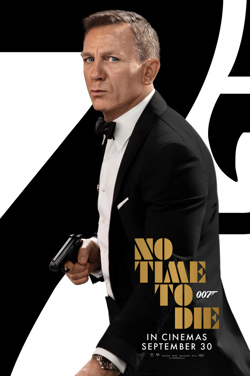
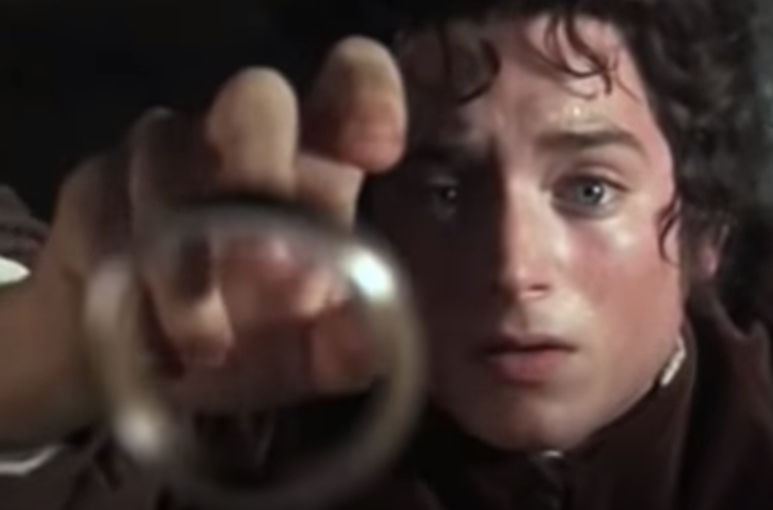

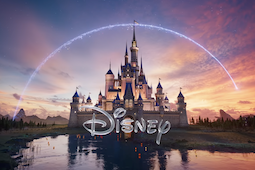
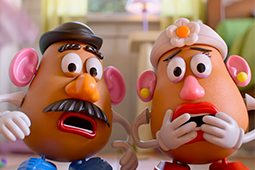
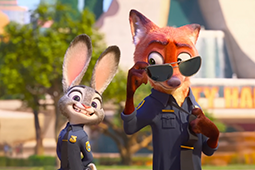
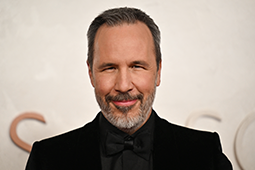
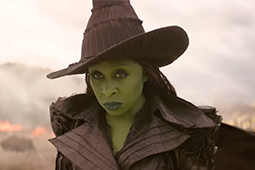
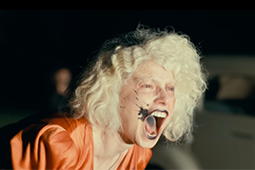
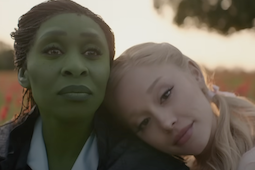
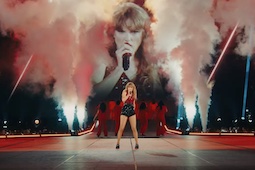
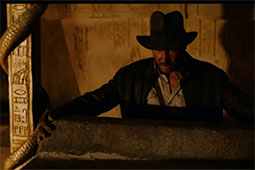


.jpg)
.png)





